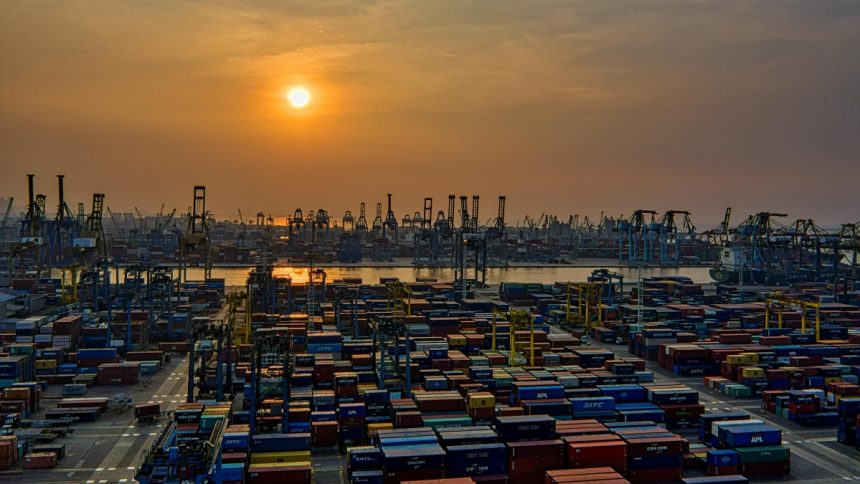Shipping goods across international borders is no small feat. The process involves navigating customs regulations, coordinating multiple modes of transport, and ensuring that your cargo reaches its destination on time and in good condition. These challenges bring about risks like delays, damaged shipments, and compliance issues. For businesses relying on a smooth supply chain, managing these risks is critical to maintaining operations and customer satisfaction.
In this article, we’ll explore practical ways to mitigate the risks associated with international freight forwarding, ensuring your shipments arrive safely and without unnecessary complications.
Choosing the Right Freight Forwarding Partner
One of the most important steps in reducing risks is selecting the right freight forwarding partner. A reliable forwarder not only handles your shipments but also acts as a trusted advisor, helping you navigate the complexities of international logistics.
When evaluating a freight forwarder, look for a company with a proven track record and expertise in your industry. Experience matters, especially when dealing with specialized cargo like hazardous materials or temperature-sensitive goods. A forwarder who knows these requirements will ensure your shipments are handled appropriately.
Another key factor to consider is the range of services offered. Comprehensive solutions, including customs brokerage, cargo insurance, and advanced tracking systems, can make a significant difference in reducing risks. Additionally, many forwarders offer air freight forwarding as part of their services, which is ideal for time-sensitive or high-value shipments. Air freight reduces transit times and minimizes handling, making it a safer and faster option for critical deliveries.
Communication is equally important. A good forwarder provides regular updates on your shipment’s status and is available to address any concerns that arise. This level of transparency and responsiveness helps build trust and ensures that issues are resolved quickly if they occur.
By choosing the right partner, you gain a strategic ally in your global shipping operations, significantly reducing the risks associated with international freight forwarding.
Leveraging Freight Insurance for Added Protection
Even with careful planning, unforeseen events like accidents, theft, or natural disasters can impact your shipments. Freight insurance is a crucial tool for minimizing the financial losses associated with these risks. It provides coverage for damaged, lost, or stolen cargo, giving you peace of mind as your goods move through the supply chain.
There are different types of freight insurance policies to consider. General cargo insurance covers most types of goods, while specialized policies are available for high-value or unique items. The level of coverage you need depends on the nature of your shipment and the risks involved.
Working closely with your freight forwarder can help you choose the right policy. Many forwarders have established relationships with insurance providers and can recommend coverage that fits your specific needs. They can also assist with the claims process if an issue arises, saving you time and effort.
While freight insurance adds to your shipping costs, it’s a worthwhile investment that protects your business from unexpected expenses and ensures financial stability in the face of unforeseen challenges.
Ensuring Proper Documentation and Compliance
Accurate documentation is essential for smooth international shipping. Missing or incorrect paperwork is one of the most common causes of customs delays and fines. To avoid these issues, it’s important to understand the documentation requirements for each country involved in your shipment.
Some key documents include the bill of lading, commercial invoice, packing list, and certificates of origin. These documents provide essential information about your shipment, such as its contents, value, and destination. Any errors or omissions can result in significant delays or additional costs.
Freight forwarders play a crucial role in ensuring compliance with international regulations. They stay up-to-date on changing requirements and help you prepare and verify the necessary paperwork. By relying on their expertise, you can avoid costly mistakes and ensure your shipments move through customs smoothly.
Using Technology to Enhance Risk Management
Technology has revolutionized the logistics industry, providing tools that help mitigate risks and improve efficiency. Shipment tracking systems, for example, give you real-time visibility into the location and status of your goods. This information allows you to anticipate potential delays and take proactive steps to address them.
Predictive analytics is another powerful tool for risk management. By analyzing data on factors like weather patterns, port congestion, and carrier performance, these systems can identify potential risks before they occur. This enables you to make informed decisions and adjust your plans as needed.
Automated systems also simplify processes like scheduling and inventory management. By integrating these tools into your supply chain, you can improve coordination and reduce the likelihood of errors or disruptions.
Planning for Unexpected Disruptions
No matter how well you plan, unexpected events like natural disasters, strikes, or geopolitical issues can disrupt your shipments. Preparing for these disruptions is essential to minimize their impact on your business.
Start by developing a contingency plan. Identify alternative routes, carriers, or suppliers that can step in if your primary options become unavailable. For critical shipments, consider diversifying your transportation methods to reduce reliance on a single mode of transport.
Freight forwarders are invaluable in managing disruptions. Their global networks and local expertise allow them to adapt quickly to changing circumstances and find solutions to keep your shipments moving.
Optimizing Cargo Handling and Packaging
Proper packaging and handling are crucial for protecting your goods during transit. Poorly packaged items are more likely to be damaged, leading to financial losses and dissatisfied customers.
Invest in high-quality packaging materials that suit the type of goods you’re shipping. For fragile items, use cushioning materials and sturdy containers. Temperature-sensitive goods may require insulated packaging or refrigerated containers to maintain their quality during transit.
It’s also important to communicate specific handling requirements to your forwarder. For example, hazardous materials require compliance with strict regulations to ensure safety. An experienced forwarder will ensure your goods are handled correctly, reducing the risk of damage or regulatory issues.
Managing risks in international freight forwarding requires a proactive approach and a strong partnership with a reliable forwarder. By understanding potential risks, choosing the right partner, and leveraging tools like insurance and technology, businesses can ensure their shipments reach their destinations safely and efficiently.
Taking these steps not only reduces disruptions but also builds trust with customers, ensuring long-term success in the global marketplace.
Lynn Martelli is an editor at Readability. She received her MFA in Creative Writing from Antioch University and has worked as an editor for over 10 years. Lynn has edited a wide variety of books, including fiction, non-fiction, memoirs, and more. In her free time, Lynn enjoys reading, writing, and spending time with her family and friends.















